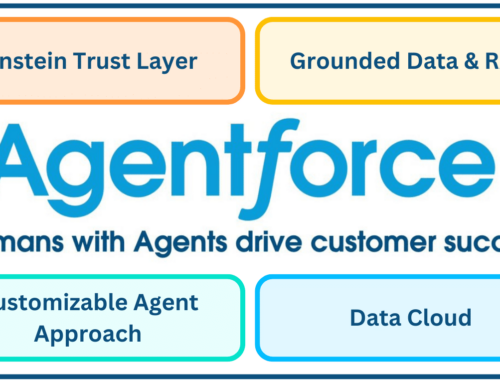What did you learn from your Salesforce Implementation? Many of our clients engage us after a failed implementation that was implemented with little or no consideration given to how sales reps will use the system or how it could be configured to deliver the kind of value that would encourage end users to get excited.
We have identified five reasons sales reps are often slow to adopt or even push back on a new Salesforce implementation. We believe the sales rep and customer experience are intrinsically linked and must be addressed together. If both of these entities are not in sync, you will not get the most of out of your CRM. If you have experienced the issues below there is help, but you will need to rebuild trust and that is not an easy task.
- The Salesforce implementation failed to include users in the design and development. Many times, CRM systems are designed to support sales accounting processes and make it easier to track performance, estimate revenue, etc. Therefore, from the outset, the system is configured with features and functions that make sense to accountants and managers but have almost no practical application or relevance to what sales reps do every day. When sales reps are not consulted to determine what tools or capabilities they would like to see in an automated sales system, the message to sales reps is very clear: “This system was created to make someone else’s job easier by giving you more work that doesn’t help you close more business.” The sales reps primary objective is to sell more, not tinker with applications. If the primary intended users are not consulted or involved in the creation and roll-out, they will not be enthusiastic about using it.
- Failure to align CRM processes with sales team processes. Once again, Salesforce implementations are too often designed to support marketing, service and revenue reporting rather than sales processes. People who monitor and analyze raw sales data think very differently and have different needs that sales reps. This becomes evident very quickly when a sales rep tries to do his/her job and can’t navigate simply and easily through Salesforce. In almost all cases, sales teams already have a process they are comfortable with that defines how they address account planning, customer research, order management, pricing, approvals and quote management. Unless the CRM system has been deployed with the sales reps input to assure alignment with their existing sales process, the CRM roll-out will precipitate a massive change in workflow. This will be accompanied by an equally massive protest from sales reps who now find difficult to use. This will make the CRM learning curve for sales reps long and painful, and many will simply avoid the process altogether.
- Failure to build trust with the sales team. The Salesforce implementation should engage with the sales reps to clearly explain the benefits (and there better be some). Sales reps are being asked to spend precious time and effort to log information into the CRM which not only offers no measurable benefit to them but which will be used to track their performance and could be used “against” them during future performance reviews. Sales reps should understand the benefit’s of that data for the management team but the input of this data should be easy and efficient. For example, if you can provide a mobile solution for data entry, this will save time and allow the reps more freedom and flexibility.
- Failure to clean up data. Data is the backbone on your customer interactions and decision making. If your data is not clean the sales rep(s) will be confused and waste time trying to track down the account and its related records. As a result of dirty data, your business cannot make good decisions because your reports and forecasts are incorrect. Your sales reps lose their edge because they can’t find accurate or complete information on their customers. Your Salesforce user adoption goes from bad to worse as your employees feel that their Salesforce data is inaccurate and unhelpful. The bottom line is wasted time and money.
- Little or no Training. Many Salesforce implementations do not include adequate training or enough training options. Sales reps are usually on the road and do not have time for one-off training sessions. There must be multiple options such as online sessions, recorded videos, and in-person events. We recommend that you provide training at your sales conference so that all reps can attend and will be available. You can’t just tell people that the new way is better, you need to show them how it’s better. It all starts with good training that is organized and customized for all users that interact with the system.
Finally, after the training, you will need to provide on-going and easy-to-access support, refresher training, cheat sheets, and chatter groups.
Salesforce implementation best practices should be followed to avoid these issues. If you would like to ensure that your Salesforce implementation is focused on driving user adoption across the organization and continual sales improvement contact us at www.cirriussolutions.com/contact.





